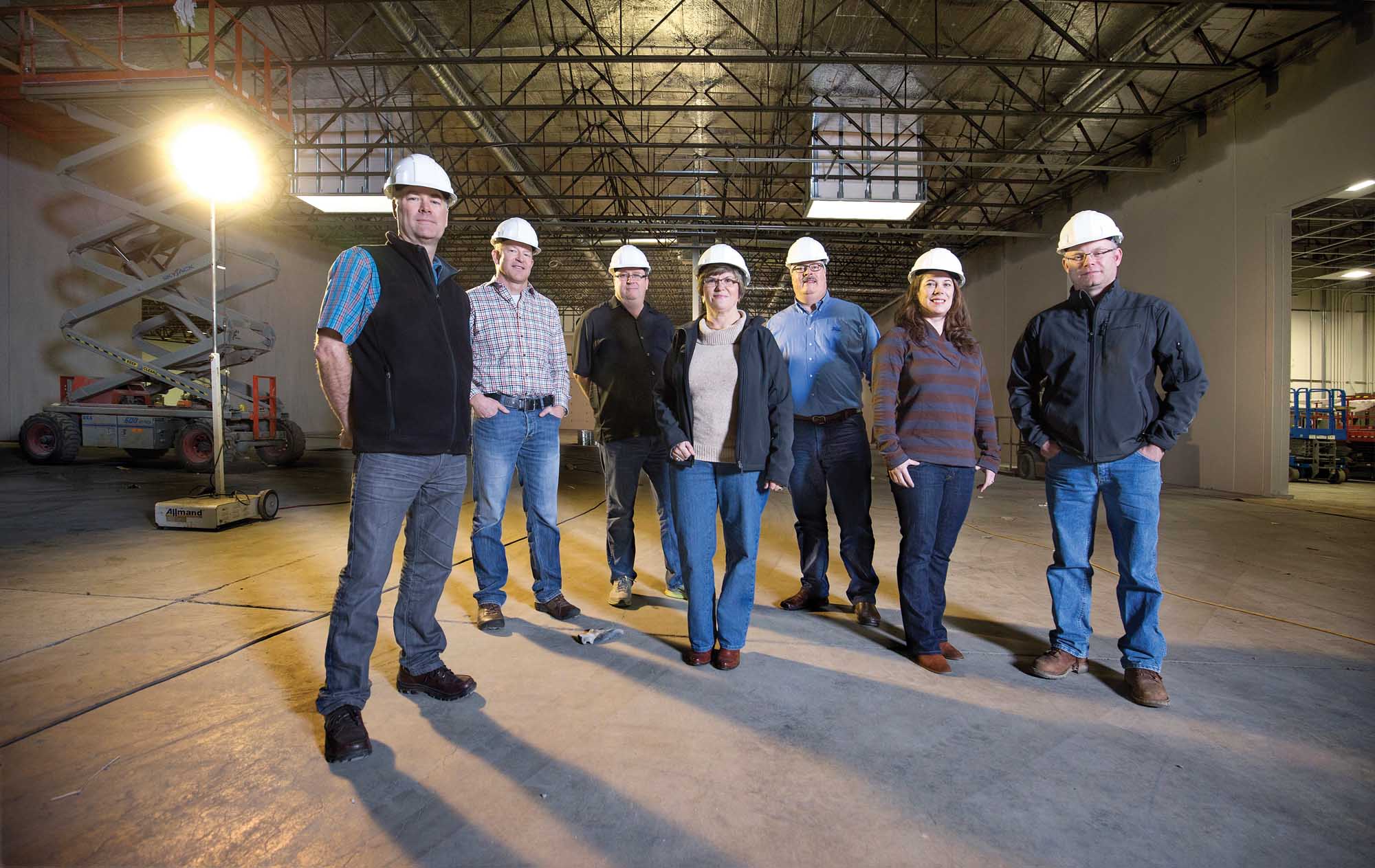
Valley Fruit and Larson Fruit together formed Legacy Fruit to handle their fruit packing businesses. From left to right: Peter Verbrugge, president Valley Fruit; Scott Jacky, director orchard operations, Valley Fruit; Keith Larson, owner, Larson Fruit Company; Barbara Walkenhauer, owner, Larson Fruit Company; Dean Gardner, chief executive officer, Legacy Fruit Packers; Mary Jacky, owner, Valley Fruit; John Verbrugge, owner and manager of orchard operations, Valley Fruit. (TJ Mullinax/Good Fruit Grower)
Two of Washington State’s long-established family tree fruit companies are joining forces to build a state-of-the-art $17 million apple packing facility that will help them remain competitive.
Valley Fruit Company in Wapato and Larson Fruit Company in Selah have already been collaborating for several years as partners in the marketing company Sage Fruit, along with Olympic Fruit Company of Yakima.
On January 1, they formed a company called Legacy Fruit that will operate their fruit packing businesses. It is not a merger, however, as each company retains its separate ownership and operates its orchards independently.
Vertical integration has been common in the tree fruit industry over the last few decades, with companies bringing growing, packing, and marketing under one entity in order to capture profits throughout the value chain. But Peter Verbrugge, president of Valley Fruit, said as business becomes more competitive, there will likely be more horizontal integration.
Very large companies are at a competitive advantage because of efficiencies of scale. Very small companies can succeed by finding specific niches. But mid-sized companies are in a vulnerable position.
During the past five years, while apple growing has been profitable, many companies have put profits into upgrading their packing facilities. Verbrugge said he’s concerned about whether some of the smaller companies that have made investments have enough throughput to sustain operations.
Most of the recent apple plantings in Washington State have been made by the larger, vertically integrated companies; packers are competing for a diminishing number of independent growers.
Future
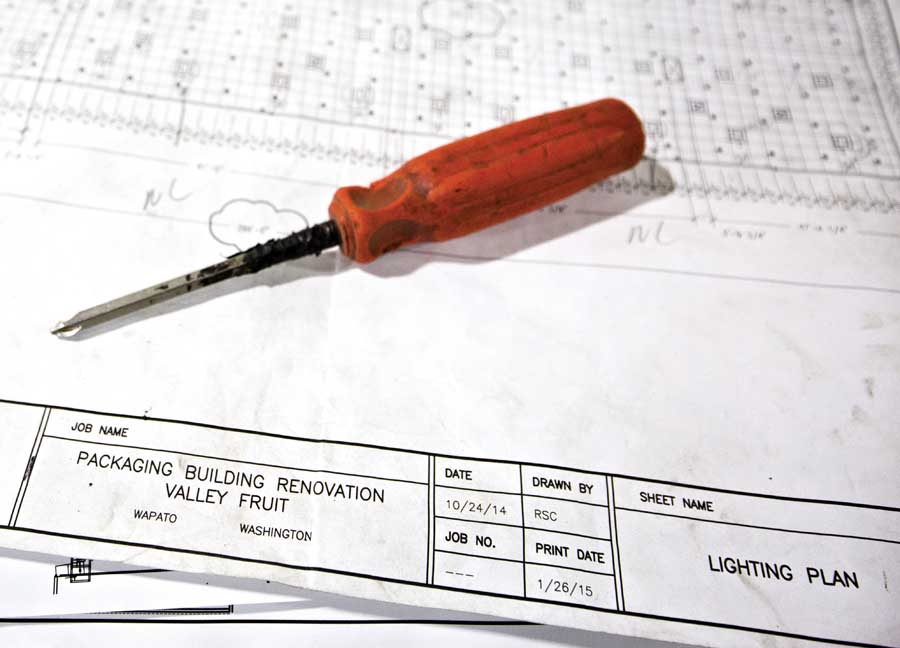
The new $17 million, 86,700-square-foot apple packing facility now under construction will be ready for the 2015 crop. (TJ Mullinax/Good Fruit Grower)
Keith Larson, who owns Larson Fruit with his cousin Barbara Walkenhauer, said that some time ago, as they contemplated the future, they decided they needed to hire a professional manager with broader experience and new ideas.
“It was nerve-racking because we’re a closely run family business,” Larson said. “That’s scary to think about handing that over to somebody else.”
Two years ago, they hired Dean Gardner as chief executive officer. Gardner, who was previously based in Portland, Oregon, had broad experience in guiding companies through transitions, mergers, and acquisitions and worked with many different industries.
About that time, Verbrugge approached his family with a similar idea. He had taken over from his father, Marty, as president of Valley Fruit and felt increasingly stretched in his duties. He felt that hiring a CEO would free him up from day-to-day operations so he could work on the strategic long-term growth of the company.
Verbrugge said it’s a challenge to find good managers within the tree fruit industry who are not members of other fruit growing families.
Several years ago, Sage Fruit Company hired from outside the industry when it appointed Steve Clement as general manager to succeed Verbrugge, who then became chair of the board. Clement previously worked for Moss Adams LLP and had a background in financial management and consulting.
“I saw the success in that, and I went to my family and said, that’s what I think we should be doing at Valley Fruit,” Verbrugge recalled. “And I approached Keith and Barb about the possibility of having a joint CEO.”
Gardner became CEO of both companies, which both faced the same conundrum.
“We each needed a new packing line, and we knew doing it alone would stretch our balance sheets, and especially going into what could be a challenging fiscal cycle for the apple industry,” Verbrugge said.
Last fall, Washington harvested a record apple crop estimated at 148 million packed boxes. Average Gala and Fuji prices so far this season have been about $5 lower than last year. Verbrugge noted that economic challenges typically result in industry changes.
To strengthen their positions, Larson and Valley Fruit decided to merge their warehouse operations and form a new company called Legacy Fruit to manage them.
Gardner said he faced a new challenge of working with two separate family-owned companies that were very proud, independent entities and shepherding them through the process of talking about partnering with each other and helping to make it happen.
“This is fairly unique to the industry,” he said. “There have been partnerships on lines before, but they’ve operated the line independently. To really put a partnership together and have one management team is a big step for a family-owned business.”
Gardner said the management structure is much more cost effective than what Valley Fruit and Larson could have done on their own.
“That’s what’s driving this—efficiencies at the management and overhead level and at the production level,” Verbrugge added.
New facility
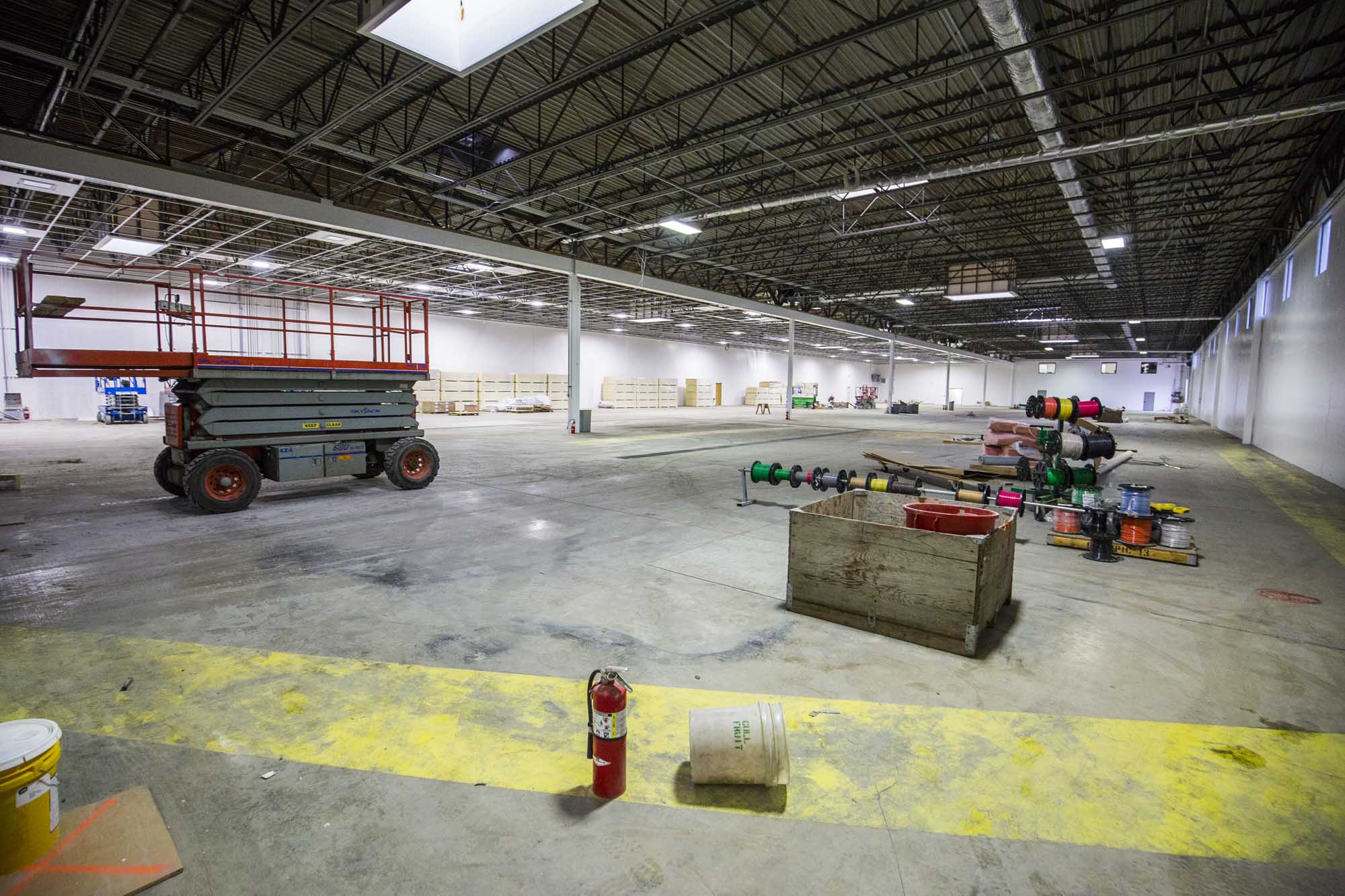
The new $17 million, 86,700-square-foot Legacy Fruit Packers apple packing facility under construction on February 11, 2015 in Wapato, Washington will be ready for the fall 2015 crop. (TJ Mullinax/Good Fruit Grower)
To house the new packing line, the companies are combining two old packing rooms at Valley Fruit’s plant into one 86,700 square-foot facility.
The 550-foot long, 10-lane line will feature the latest technology from Greefa, including internal defect and firmness detection, and peripheral equipment from United Sales Inc. in Yakima. It will have a capacity of 600 bins per extended shift and will be ready for the 2015 crop.
To ensure food safety, water in the dump tank will be kept separate from flume water. The line will have a long brush bed to make sure apples are washed thoroughly, and a new floor has been installed for easy cleaning. The line will be gentler on the fruit as well as faster and is designed to handle a plethora of new packaging types, including mesh bags and pouches.
“We’ve tried to set up the line to handle as many packaging types as we see coming at us, and we invested heavily in that technology,” Gardner said.
Gardner and the owners checked into the options very carefully while designing the new facility.
“We did a lot of homework,” he said. “I think we visited about every warehouse there is. That’s one of the nice things about this industry—it’s not like any industry I’ve worked in. You would never get into another plant in another industry and ask them how much they paid for it and what they would do differently. That wouldn’t happen. We were able to ask questions, and I know they were answered honestly. By the time it got to making decisions, we were well informed.”
Delicate
The new commit-to-pack line replaces a presizer and two packing lines installed in 1993 when Valley Fruit’s variety mix was about 60 percent Red Delicious, 30 percent Golden Delicious, and 10 percent other varieties. Washington is now producing large volumes of varieties that are too delicate to take the additional handling involved with presizing, so there’s been a shift away from presorting. Some of the equipment removed from Valley Fruit was used to upgrade the packing lines at Larson Fruit’s Selah plant.
Gardner estimates that the estimated payback period for the $17 million investment is five to seven years, compared with more than 15 years if one of the companies had done it alone.
Merging the packing staff has enabled the company to avoid duplication, particularly in the areas of human resources and food safety, and match people up to the best positions. Gardner said the workforce may not be smaller, but productivity will go up dramatically because more fruit can be handled with the same number of people.
Pooling their packing resources also means fruit can be packed where it makes the most sense. Legacy will use one of Larson’s packing lines as a dedicated pear line.
The two companies together handle about 280,000 bins of apples and pears annually. The new line will allow them to grow to 300,000 bins (about 6 million packed boxes).
Both companies pack fruit for about 20 outside growers as well as fruit from their company orchards. With additional capacity, they hope to attract more outside growers. The efficiencies should help minimize costs and keep their packing charges competitive.
“We’re going to be growing and, since it’s one company, we’re going to be growing together and looking for growth opportunities with our current growers and new growers,” Verbrugge said.
Larson said the partnership has helped the company owners to learn from each other.
“Peter does have a knack for being a visionary, for seeing opportunities, and that’s not one of my strengths, so it’s really cool that he’s on our team now,” he said. “I think we’re going to be much more effective working together than working independently, because we both have skills.” •
—–
Family ties
Larson Fruit Company’s origins go back to Henry Larson, who began growing apples in the 1930s. In 1955, Henry formed the packing company at Selah in partnership with his sons Ross and Vern. The company is now owned by Ross’s daughter
Barbara Walkenauer, who is chief financial officer, and Vern’s son Keith.
Valley Fruit got its start in 1982 when Marty Verbrugge (whose father, Martin, founded Verbrugge Farms) established the warehouse company. Marty’s son Peter is now president of Valley Fruit.
Peter’s brother John Verbrugge oversees the growing operations in the Yakima Valley, while his brother-in-law Scott Jacky (his sister Mary’s husband) oversees company orchards in the Columbia Basin.
Mary Jacky is on the executive board of Valley Fruit and helped develop the Legacy partnership with Larson Fruit. Another sister, Carol Buckingham, who lives in Seattle, also sits on the ownership board.

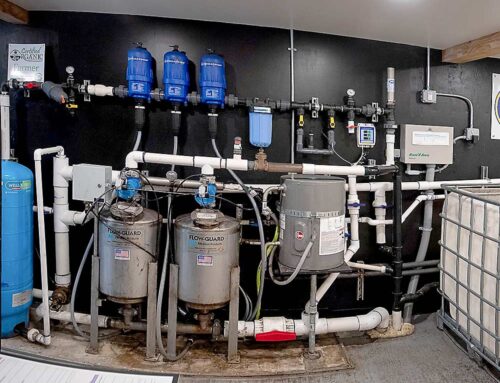
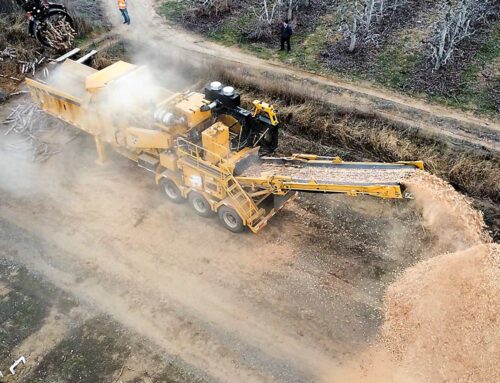
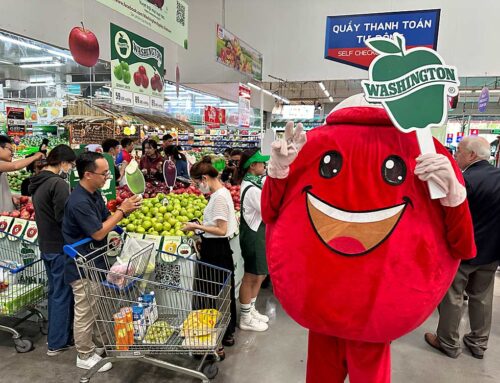
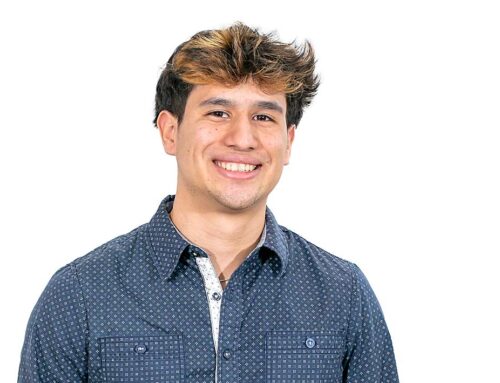
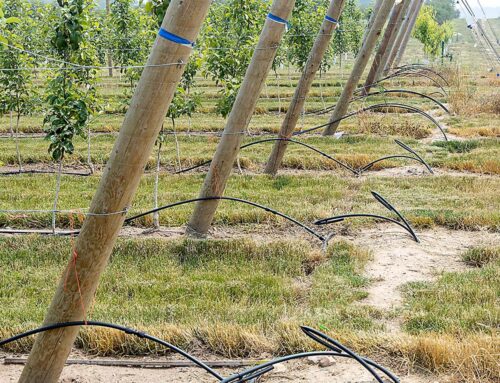
Leave A Comment